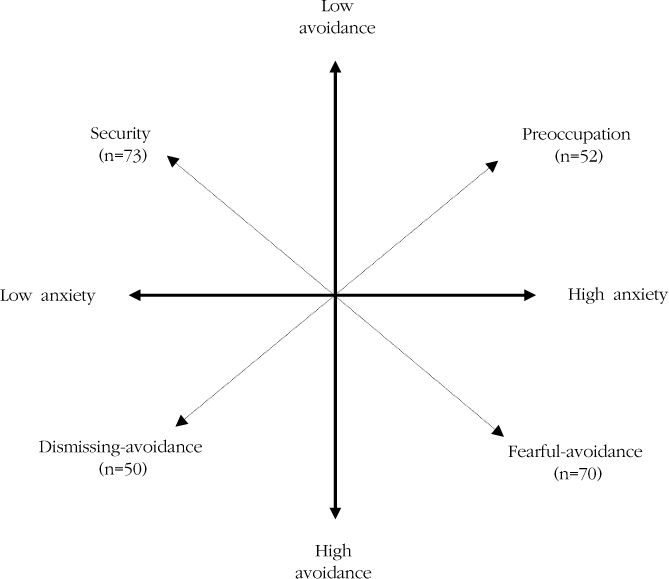1Gyeongsang National University Hospital, Korea.
2College of Nursing · Institute of Health Sciences, Gyeongsang National University, Korea.
Copyright © 2013 Korean Academy of Nursing Administration
This article was an added part of the second author's master's thesis from Gyeongsang National University.


General Characteristics and Adult attachment styles of Early Stage Nurses (N=245)
*Comparison of security and fearful attachment styles; †Fisher's exact test.
Interpersonal Relationship Experiences of Early Stage Nurses
Comparison of Interpersonal Relations, Hope, Professional Self-concept, and Turnover Intention according to Participants' Attachment Style (N=245)
a>b>c: Scheffe test.
*Comparison of security and fearful attachment styles; †Fisher's exact test.
a>b>c: Scheffe test.

